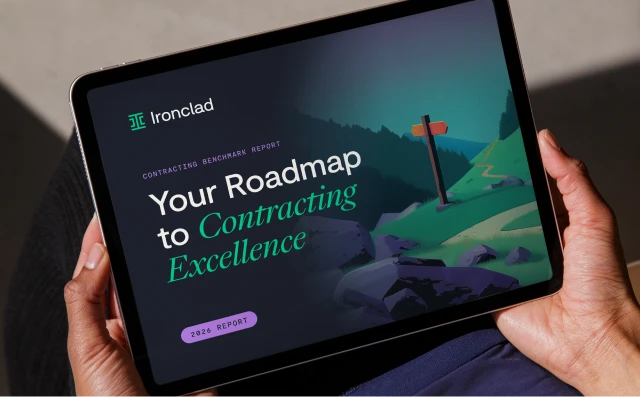Every so often, a new technology or solution category comes up in legal and dominates the conversation. Every industry has its hype cycles; ours is certainly no exception. From chatbots to legal front doors, we have had plenty of things come along that quickly raced up to the top of our agendas. Usually, they fade back after a while, replaced with the next white hot “big thing.”
I can’t remember ever seeing a technology rise so quickly to dominate the discussion in legal as generative AI. I’m not sure anyone has. We’ve been talking about AI for years, of course, but it was always very much on the periphery. It was this interesting, somewhat academic thing that seemed to hold high potential for eventual broad use, but was clearly years away from being ready for the front lines.
Of course, that has all changed. After years of being a constant but secondary source of discussion and focus, AI has, virtually overnight, transitioned into a front burner topic for all of us. If your news feed is anything like mine, you have been deluged with an endless stream of articles and claims about how this new technology will change everything.
So what do we make of AI? There is clearly so, so much hype flooding the market, with every vendor attempting to remake themselves as some sort of AI leader. But there is also so much undeniable potential present, even in these very early days. So what will the real impact be?
AI will rearrange the leaderboard of our industry
You all probably saw the Goldman Sachs report that came out. The headline message: 44% of tasks within legal could be automated by AI. That certainly got everyone’s attention. Of course that is speculative, but it’s not a crazy viewpoint. And when you step back and think about how much of “legal work” is still manual or nearly so, you realize they could be in the ballpark.
So is AI this neutron bomb that is going to wipe out millions of jobs in legal? Is it going to redefine every part of our industry? Or is it going to be something that has a deep impact, but one that takes years to play out?
Here is how I think about it. I have young girls at home and despite being overly competitive, I love a good board game night. And when they were young, and things weren’t going their way, they would sometimes bang on the board. All the pieces go everywhere!
Well, that’s what AI feels like to me. It’s a powerful force banging on the game board of legal, moving all the pieces around. Will it set you back? Move you forward? Or knock you off the game board completely? In my opinion, the answer will depend greatly on a couple of factors.
Get started with AI right now
One is how early and seriously you engage with the technology. With something this new and unproven, there can be a strong temptation to take a wait-and-see approach. Very often in our industry, rushing to be the first to consider and adopt big new technology innovations is a dangerous strategy. Conventional wisdom would say, let’s observe this from a safe distance and wait until some clear practices and success stories emerge.
I understand this thinking. I’ve done it myself at times. That said, when it comes to legal and AI, sitting on the sidelines for a year or two and waiting for things to settle is a sure path to irrelevance. Generative AI for knowledge work is here, and it’s not going away.
In fact, it’s only going to get better and play an increasing role in how successful businesses get things done. Through the end of this year, we will see new and unprecedented AI-powered applications that we never before thought possible. The marketplace will be flooded by a proliferation of applications well-suited to speeding up common legal tasks.
For instance, we’re already starting to see apps that let you upload a bunch of documents and ask a chatbot specific questions about them. Perfect for flying through research at unprecedented speeds. As AI models and user-facing apps develop — and that development is happening quickly — the technology will also be able to help with more complex tasks.
With so much value likely to be unlocked so quickly, the harsh reality is that waiting will set you behind your peers and rivals. A legal team that does not frame some kind of clear, proactive strategy and investment in AI will be lagging the industry. That’s not a “five years out” or even a “next year” comment. That could come to pass in the next few months.
Be willing to make big changes
Perhaps the other biggest factor to success with legal and AI is this. Are you willing to make difficult decisions, including abandoning significant projects and investments? Are you able to pull back or reallocate resources in a way that may feel uncomfortable?
This is going to be one of the burning questions confronting everyone in a legal leadership position over the next few years. Because we have all made deep, long-running investments in technologies, solutions, and skill sets that are at risk of either being outright irrelevant or, at the least, less significant in the very near future.
Consider just one solution category that has been at the absolute core of most technology strategies for years: document management. Let’s say you have implemented a leading document management solution. You have refined it with your vendor, worked out the kinks through long and painful practice, and tirelessly trained your users to make the most of it. What do you do with it now?
Because I really believe that in not too long, beyond basic storage functionality, it will be a dead solution category. We won’t need complex file folder structures or metadata tagging anymore; we will simply be able to put all our stuff in one place and leave it to AI to extract all the information and value from documents. And that’s just one scenario! There are many places where AI has the potential to vault us forward into a totally new model, leaving current tech and practices behind.
One of the hardest challenges is to abandon something you have invested in and sweated to create. It is human nature to resist that impulse, but that is the mindset that will lead you to fall behind as others move forward.
Recognize the opportunity!
Like the technology itself, the conversation around generative AI is only getting started. We all have much to learn about its promise and peril.
For now, though, I’ll leave you with this closing thought. It can be terrifying to confront a big paradigm shift such as AI seems to represent for our industry. It can also, however, be incredibly freeing, a unique opportunity to move past blockers and challengers that have seemed immovable for so long.
Ironclad is not a law firm, and this post does not constitute or contain legal advice. To evaluate the accuracy, sufficiency, or reliability of the ideas and guidance reflected here, or the applicability of these materials to your business, you should consult with a licensed attorney. Use of and access to any of the resources contained within Ironclad’s site do not create an attorney-client relationship between the user and Ironclad.

















